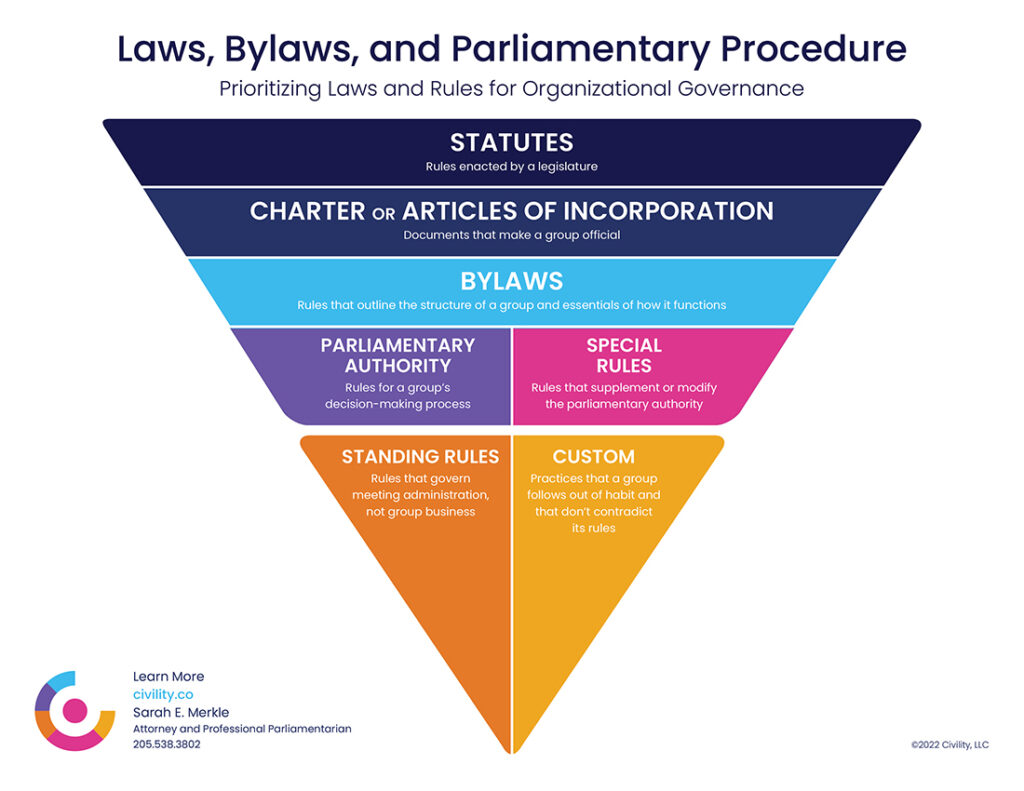Does parliamentary procedure matter? Absolutely. But we all know that Robert’s Rules can really cramp your style. (Eighth wonder of the world: A parliamentarian actually admits the frustrations of procedure!) So, some good news: Naming a parliamentary authority (such as Robert’s Rules of Order) in your bylaws doesn’t mean it becomes the bible. There are ways to tweak it to meet your needs. Enter: Special rules.
Special rules are rules that supplement or modify your parliamentary authority (that is, your chosen rulebook). These rules work because they’re specific to the needs of your organization.
Who Needs Special Rules?
I know what you’re thinking. We have enough rules. Who wants to add more – special or not? Well, if Robert’s Rules is your parliamentary authority, I have two good reasons for you to add some organization-specific tweaks.
- Reason #1: Robert’s Rules says that each member of a group can speak two times, and up to 10 minutes per time on each motion. Whaaat?! Kill me now, please. Unless you have the best Ted Talk ever on why we should have the 2020 annual conference on the moon this year, there’s pretty much no one I want to hear talk for 10 minutes about anything. No need to open the door and let Joe Talker have free reign. Even if he’s awesome. Or your best friend. Or influential for the cause. A special rule could limit speaking time to match the true needs of your organization.
- Reason #2: Robert’s Rules provides a standard order of business that goes like this: (1) Reading and Approval of Minutes, (2) Reports of Officers, Boards, and Standing Committees, (3) Reports of Special Committees, (4) Special Orders, (5) Unfinished Business and General Orders, and (6) New Business. Ask yourself: Does this order work for us? I’ve talked before, for example, about how saving new business till the end of a meeting can kill productivity. And really, who wouldn’t skip the first 30 minutes of a meeting spent on committee reports with information everyone already knows or doesn’t care to know? A special rule can re-organize an agenda for efficiency.
The How-To on Special Rules
Adopting special rules takes a bit of forethought, but it’s not hard, especially if your rule has good rationale. You need either a majority of the entire membership or two-thirds of those present and voting if you give previous notice (meaning, a heads-up before the meeting that you’re going to vote on that rule).
Good to know you have the power, right? Make parliamentary procedure work for you – via properly adopted special rules.
Where to Learn More


